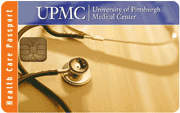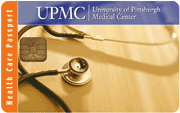Beverly, Addison Gilbert Hospitals Launch Health Card Technologies’ Smart Card Program
18 September, 2003
category: Biometrics, Education, Health
BEVERLY, Mass.–(BUSINESS WIRE)–Sept. 17, 2003–Beverly Hospital and Addison Gilbert hospital patients are receiving medical smart cards as part of a program designed to make hospital registration faster and more efficient. With nearly 500,000 cards to be distributed in the next 12 months, they are the first private hospitals in the United States to issue smart cards to all of their patients.
The hospitals’ parent company Northeast Health System (NHS) has been working closely with Oklahoma City-based Health Card Technologies, Inc. (HCT) for the past year to develop a patient admitting system that uses smart cards with embedded computer chips. The cards contain access codes for each patient’s medical record, which are read through smart card readers attached to the hospitals’ admitting terminals.
“Our admissions process is easier and more convenient with patient smart cards,” says Cheryl Akre Teal, director of access services of Beverly and Addison Gilbert hospitals. “The access services staff can pull up the patient information instantaneously, eliminating the need for entering the record number manually. This greatly reduces the likelihood of errors such as duplicate records.”
Accidental creation of duplicate records is a major problem in healthcare computing. It can be caused by an errant keystroke in the data entry process, or when a patient or family member provides the wrong social security number. These errors are not only a time-consuming headache for medical records staff, but they can cause critical medical information to be hidden from treatment professionals. “With the smart card, we will decrease duplicate records and improve patient identification,” says Teal.
Beverly and Addison Gilbert hospitals’ smart cards only store information that identifies the patient’s records in the hospitals’ computers. If the card is stolen or lost, there is no security risk. “Even if someone with the right tools managed to read the information on the smart card chip, they wouldn’t learn anything other than the patient’s record number within our system. This won’t help anyone defeat all of the layers of security and access control we have in place that ensure that patient confidentiality, especially when dealing with medical records, is held to the highest integrity,” says Akre Teal.
The smart card admissions program is just the first step in establishing a system where ultimately all patients will carry their medical history on a smart card. “Today we are addressing a very important need within hospitals to streamline admission – but more importantly, we have built the infrastructure to launch more sophisticated applications of smart cards in the future. We’ll be able to offer cards that store extensive medical history information, insurance data, emergency contacts and more,” said Chris Kavanaugh, CEO and president of HCT. “We can start to build a community-wide healthcare information network that links patients, care providers, and payors.”
NHS is fully implementing the admission program over the next several months. From there, they will be actively seeking to grow card applications. “We’ll be expanding the smart card system for the next several years,” said Teal. “We evaluated many alternatives and are convinced that smart cards offer the best combination of convenience and security.”
Technology Facts
Smart cards are a family of plastic wallet sized cards with embedded computer chips. These chips are available with a wide variety of security capabilities and storage capacities. Currently, smart cards are available with highly advanced built-in cryptographic engines for public key security; others have up to one megabyte of electronically reprogrammable memory.
The smart card systems of Beverly and Addison Gilbert hospitals use the same technology being used in the national health care smart card program of Germany, an application of over 80 million smart cards. The smart card chips, manufactured by Infineon Technologies AG of Munich, Germany, are models SLE4442. The smart card readers, manufactured by SCM Microsystems of Ismaning, Germany, are the Towitoko Chipdrive 130s.
HCT specializes in medical applications of advanced automation technologies, and has been in business since 1994. In addition to the program in Beverly, HCT has provided smart card systems for two Oklahoma hospital networks. For more information about smart cards and Health Card Technologies, Inc., visit www.hct.com.
Northeast Health System, Inc. (NHS) is an integrated health care system comprised of a network of hospitals and medical affiliates offering North Shore residents general and specialized medical care. Along with Beverly and Addison Gilbert hospitals – NHS’ two acute care facilities – behavioral health services are provided through Health & Education Services, Inc., while substance abuse and prevention services are available through CAB Health & Recovery Services, Inc. In 2002, the Solucient Institute named Beverly and Addison Gilbert hospitals among the nation’s 100 Top Hospitals for the second consecutive year. For more information on Northeast Health System and its affiliates, visit www.nhshealth.org.
For more information, contact:
Shawn Middleton at 978-922-3000 ext. 2483 or
[email protected]
for hospital details;
Chris Kavanaugh at 405-936-0651 or [email protected] for technical questions;
or
Sandy Pantlik at 405-525-0055 or [email protected] for details
about smart cards.
Contacts
Northeast Health System, Inc.
Shawn Middleton, 978-922-3000 ext. 2483
[email protected]
or
Health Card Technologies, Inc.
Chris Kavanaugh, 405-936-0651
[email protected]
or
Visual Image Advertising
Sandy Pantlik, 405-525-0055
[email protected]



